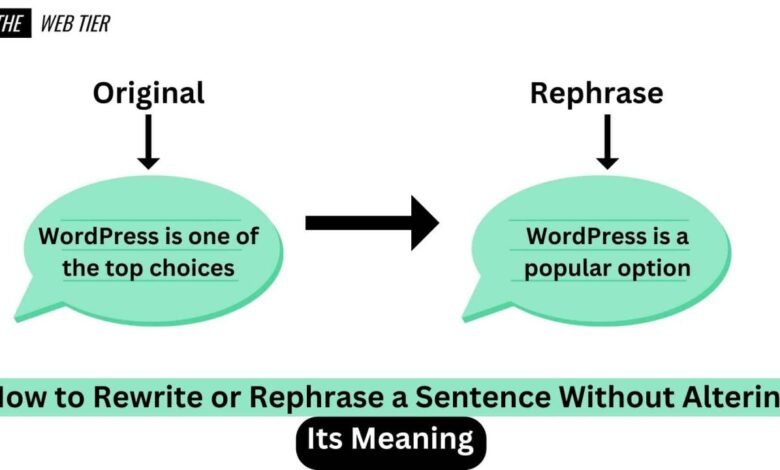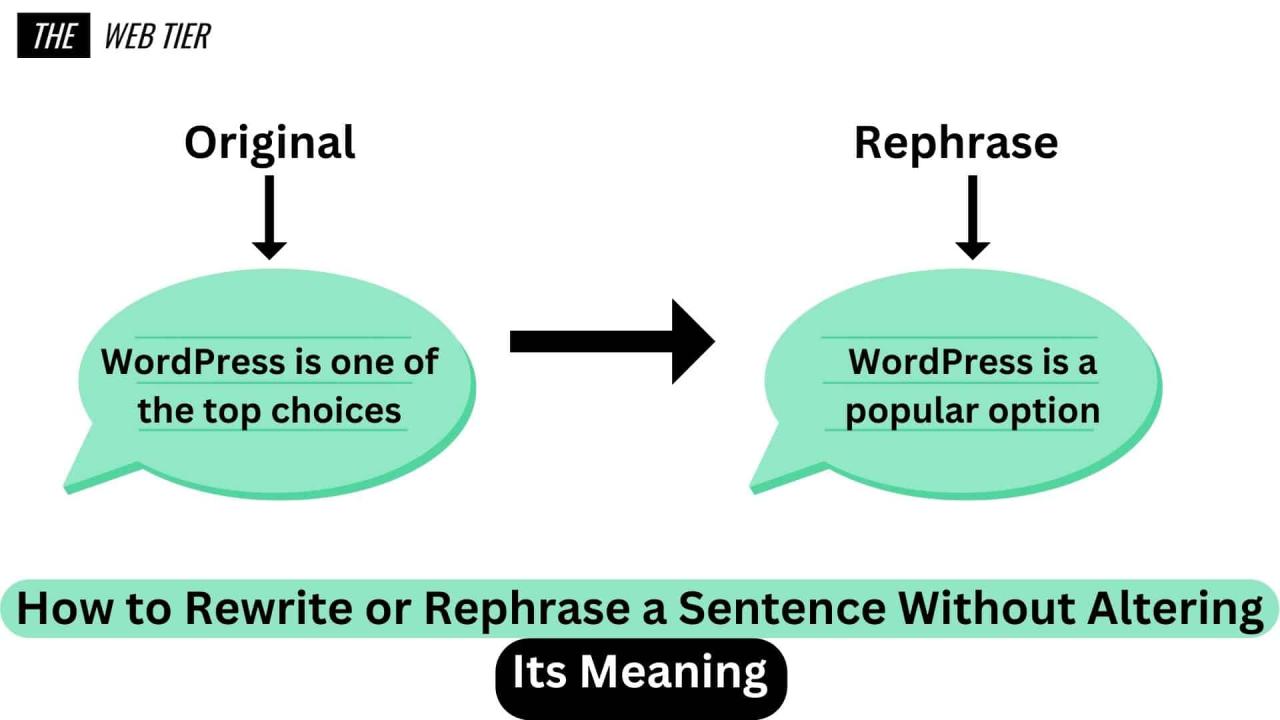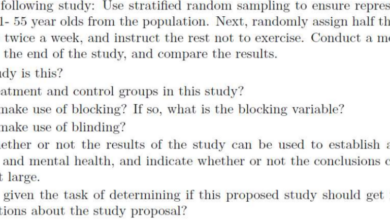
Your Body on Soda: The Sweet Truth
Your body on soda: it’s a phrase that conjures images of fizzy drinks, sugary highs, and perhaps even a touch of guilt. But the truth is, soda’s impact goes far beyond a fleeting burst of sweetness. From its influence on blood sugar levels to its potential role in chronic diseases, the effects of soda consumption are complex and often overlooked.
This journey delves into the science behind soda, its impact on your health, and the alternatives that can keep your body thriving.
We’ll explore the science behind how sugar and artificial sweeteners affect your body, examine the connection between soda and weight gain, and uncover the potential dangers to your dental and bone health. We’ll also shed light on the role of soda in the development of chronic diseases, like type 2 diabetes and heart disease, and discuss the importance of mindful consumption.
The Science of Soda Consumption
Soda, a ubiquitous beverage enjoyed by millions, has become a subject of intense scrutiny due to its potential health implications. Understanding the science behind soda consumption is crucial for making informed choices about our dietary habits.
Sugar’s Impact on the Body
Sugar, the primary ingredient in most sodas, plays a significant role in influencing our health. When we consume sugary drinks, our bodies experience a rapid surge in blood sugar levels. This sudden spike triggers the release of insulin, a hormone that helps regulate blood sugar by transporting glucose from the bloodstream into cells for energy.
However, excessive sugar intake can lead to insulin resistance, a condition where cells become less responsive to insulin, resulting in persistently elevated blood sugar levels.
Artificial Sweeteners in Soda
The rise of diet sodas has introduced artificial sweeteners as an alternative to sugar. These sweeteners, often marketed as “sugar-free,” provide sweetness without the added calories. However, the long-term health effects of artificial sweeteners remain a subject of ongoing research.
Some studies suggest that artificial sweeteners may disrupt gut bacteria, potentially contributing to metabolic disorders like obesity and type 2 diabetes.
Comparing Soda Types, Your body on soda
While regular sodas are high in sugar, diet sodas and sugar-free alternatives present a different set of challenges.
- Regular Soda:Regular sodas, rich in sugar, contribute to weight gain, tooth decay, and an increased risk of chronic diseases such as type 2 diabetes and heart disease.
- Diet Soda:Diet sodas, containing artificial sweeteners, are calorie-free but may have their own set of potential health risks, including gut microbiome alterations and a possible association with metabolic disorders.
- Sugar-Free Alternatives:Sugar-free alternatives, often sweetened with natural sugars like stevia or monk fruit, offer a lower-calorie option. However, it’s important to note that even natural sugars can contribute to blood sugar fluctuations and may not be suitable for individuals with diabetes or other health concerns.
Soda’s Impact on Weight Management
Soda consumption has been linked to weight gain, and this is primarily due to the high amount of calories and sugar present in most sodas. While it’s important to note that weight gain is a complex process influenced by various factors, the consistent intake of sugary beverages can significantly contribute to an individual’s overall calorie surplus.
Soda’s Role in Weight Gain
The high calorie content of soda is a significant contributor to weight gain. Sugary drinks provide “empty calories,” meaning they offer little to no nutritional value but contribute to overall calorie intake. A 12-ounce can of regular soda can contain around 150 calories, and this amount can easily add up throughout the day.
You know that fizzy feeling you get after a soda? It’s not just bubbles; it’s your body reacting to the sugar rush and the lack of essential nutrients. But instead of feeling deprived, why not try some sustainable approaches to weight loss?
Check out these 4 sustainable ways to lose weight without fad diets that focus on healthy habits, not quick fixes. You’ll feel better overall, and your body will thank you for the long-term change, even if it means saying goodbye to that sugary soda habit.
For instance, consuming two sodas daily can add an extra 300 calories to your daily intake, which can contribute to weight gain over time.
Soda’s Impact on Metabolism and Energy Expenditure
Soda consumption can also negatively impact metabolism and energy expenditure. Sugary drinks can trigger a surge in insulin levels, which can lead to increased fat storage. Additionally, soda can reduce the body’s ability to burn fat, as it disrupts the normal hormonal balance that regulates metabolism.
Studies have shown that individuals who consume sugary drinks regularly tend to have lower resting metabolic rates, meaning they burn fewer calories at rest.
Reducing Soda Intake for Weight Loss
Reducing soda intake can contribute to weight loss by decreasing calorie intake and promoting healthier dietary habits.
- By switching to water, unsweetened tea, or other low-calorie beverages, individuals can significantly reduce their daily calorie intake.
- Reducing soda consumption can also help individuals develop healthier eating habits and make more mindful food choices.
For example, a person who consumes two sodas daily can potentially reduce their calorie intake by 300 calories per day by switching to water. Over time, this can lead to significant weight loss.
Dental Health and Soda Consumption

The sweet and fizzy allure of soda can be tempting, but its impact on our dental health can be detrimental. Soda’s high sugar content and acidic nature contribute to tooth decay, erosion, and other dental problems.
The Connection Between Soda and Tooth Decay
Sugar is a primary culprit in tooth decay. When we consume sugary drinks like soda, bacteria in our mouths feast on the sugar, producing acids that attack the enamel, the protective outer layer of our teeth. This acid attack weakens the enamel, making it more susceptible to cavities.
Tips for Reducing the Negative Impact of Soda on Dental Health
- Limit Soda Consumption:Reducing soda intake is the most effective way to minimize its impact on dental health. Opt for water, unsweetened tea, or milk as healthier alternatives.
- Choose Sugar-Free Options:If you do choose to drink soda, opt for sugar-free varieties. These contain artificial sweeteners that don’t contribute to tooth decay.
- Drink Soda with Meals:Consuming soda with meals can help dilute its acidity and reduce its contact time with teeth.
- Rinse Your Mouth After Drinking Soda:Rinsing your mouth with water after drinking soda helps neutralize the acids and wash away sugar residue.
The Importance of Proper Oral Hygiene Practices
Maintaining good oral hygiene is crucial, especially if you consume soda regularly.
- Brush Your Teeth Twice a Day:Brushing your teeth twice a day with fluoride toothpaste helps remove plaque and bacteria that contribute to tooth decay.
- Floss Daily:Flossing removes food particles and plaque from between teeth, where brushing can’t reach.
- Visit Your Dentist Regularly:Regular dental checkups and cleanings are essential for detecting and preventing dental problems.
Soda and Bone Health

Soda consumption has been linked to various health concerns, and its potential impact on bone health is a growing area of research. While more research is needed to fully understand the complex interplay between soda consumption and bone health, existing studies suggest a potential negative association.
The Role of Phosphorus and Calcium in Bone Health
Phosphorus and calcium are essential minerals that play crucial roles in maintaining bone health. Calcium is the primary mineral component of bone, providing structural integrity and strength. Phosphorus, on the other hand, is involved in bone formation and mineralization. Maintaining a balanced ratio of calcium to phosphorus is essential for optimal bone health.
A balanced calcium-to-phosphorus ratio is crucial for bone health, as it ensures proper bone formation and mineralization.
The Impact of Soda on Bone Health
Soda consumption can potentially disrupt the delicate balance of calcium and phosphorus in the body, potentially impacting bone health. The high phosphorus content in soda can lead to an imbalance in the calcium-to-phosphorus ratio, potentially hindering calcium absorption and increasing the risk of bone loss.
Comparison of Regular Soda and Diet Soda
While regular soda contains high amounts of phosphorus, diet soda’s impact on bone health is less clear. Some studies suggest that artificial sweeteners in diet soda may disrupt gut bacteria, potentially affecting calcium absorption and bone health. However, more research is needed to confirm this association.
While regular soda contains high amounts of phosphorus, the impact of diet soda on bone health is less clear, with some studies suggesting potential disruption of gut bacteria and calcium absorption.
Other Health Considerations
Beyond weight management, dental health, and bone health, soda consumption can have broader implications for overall well-being. Research suggests potential links between soda consumption and several chronic diseases, highlighting the importance of mindful consumption.
Potential Links to Chronic Diseases
The high sugar content in soda has been linked to an increased risk of developing chronic diseases such as type 2 diabetes, heart disease, and kidney disease.
- Type 2 Diabetes:Excessive sugar intake from soda can contribute to insulin resistance, a key factor in the development of type 2 diabetes. Insulin resistance occurs when the body’s cells do not respond properly to insulin, a hormone that regulates blood sugar levels.
You know that fizzy feeling you get after a soda? That’s your body trying to process all that sugar and artificial ingredients. Instead of reaching for another can, why not try some delicious and healthy alternatives? Check out these delicious ways to use chickpeas under 360 calories – they’re packed with protein and fiber, which will leave you feeling satisfied and energized, not sluggish and bloated.
Your body will thank you for it!
This can lead to elevated blood sugar levels, increasing the risk of developing type 2 diabetes.
- Heart Disease:Studies have linked high sugar intake from soda to an increased risk of heart disease. Excessive sugar consumption can contribute to weight gain, high blood pressure, and elevated triglyceride levels, all of which are risk factors for heart disease.
- Kidney Disease:Some studies suggest that high sugar intake from soda may be associated with an increased risk of kidney disease. Excessive sugar consumption can put stress on the kidneys, potentially leading to damage over time.
The Role of Caffeine and Other Ingredients
Soda often contains caffeine, which can have both positive and negative effects on health.
- Caffeine:In moderate amounts, caffeine can provide a temporary boost in alertness and energy. However, excessive caffeine intake can lead to anxiety, insomnia, and digestive problems.
- Artificial Sweeteners:Some sodas contain artificial sweeteners, which are intended to reduce sugar content. However, the long-term health effects of artificial sweeteners are still being studied. Some studies have suggested potential links between artificial sweeteners and changes in gut bacteria, which could impact overall health.
- Phosphoric Acid:Soda often contains phosphoric acid, which can contribute to bone loss.
Moderation and Mindful Consumption
While occasional soda consumption is unlikely to have a significant impact on health, regular and excessive consumption can contribute to various health problems.
It is important to practice moderation and mindful consumption of soda, choosing healthier alternatives whenever possible.
Alternatives to Soda
While soda may be a tempting choice for its sweetness and fizz, it’s crucial to understand that its negative impact on health far outweighs its fleeting pleasure. Thankfully, a wide range of healthier alternatives exist, offering both taste and well-being.
Your body doesn’t know the difference between a sugary soda and a sports drink – it just sees empty calories that can sabotage your training and weight loss goals. If you’re an athlete looking to shed pounds, you need a strategic approach to calorie cutting.
Check out this article on calorie cutting for athletes looking to lose weight to learn how to fuel your body effectively. Remember, ditching the soda and focusing on nutritious foods will help you achieve your fitness goals and keep your body performing at its peak.
Water: The Foundation of Hydration
Water is the ultimate beverage for hydration, essential for countless bodily functions. It’s calorie-free, sugar-free, and readily available. Drinking water throughout the day can help regulate body temperature, transport nutrients, and flush out toxins.
Unsweetened Tea: A Refreshing and Versatile Choice
Unsweetened tea, whether black, green, or herbal, offers a delightful alternative to sugary drinks. It’s rich in antioxidants and can contribute to overall health. Explore various tea varieties and experiment with different brewing methods to discover your favorites.
Fruit-Infused Water: A Burst of Flavor
Infusing water with fruits like lemons, limes, oranges, berries, or cucumbers adds a burst of flavor without the added sugar. Experiment with different combinations to create your own signature fruit-infused water. This simple trick can make water more appealing and encourage you to stay hydrated.
Homemade Soda Alternatives: A Healthy and Flavorful Option
Creating your own healthy soda alternatives allows you to control the ingredients and avoid artificial sweeteners and flavors. Here are some recipes for homemade, healthy soda alternatives:
- Sparkling Water with Lemon and Mint:Combine sparkling water with fresh lemon juice and mint leaves for a refreshing and invigorating drink.
- Ginger Ale:Steep grated ginger in hot water for a few minutes, then strain and combine with sparkling water for a spicy and soothing beverage.
- Hibiscus Iced Tea:Steep dried hibiscus flowers in hot water, then chill and serve over ice for a tart and refreshing drink.
Soda Consumption in Different Cultures
Soda consumption is a global phenomenon, with different cultures having their own unique patterns and preferences. Understanding these cultural variations can provide insights into the factors that influence soda consumption and the potential health implications associated with it.
Cultural Significance of Soda Consumption
The cultural significance of soda consumption varies widely across the world. In some cultures, soda is seen as a symbol of modernity, wealth, and celebration. In others, it is a staple beverage, consumed daily by people of all ages. For example, in the United States, soda consumption is deeply ingrained in the culture, with many people growing up with soda as a regular part of their diet.
In Mexico, Coca-Cola is so popular that it is often considered a national drink.
Soda Consumption Habits in Different Countries
- United States:The United States has the highest per capita soda consumption in the world, with an average of 44 gallons per person per year. This high consumption is attributed to factors such as the widespread availability of soda, aggressive marketing campaigns, and cultural norms that associate soda with pleasure and reward.
- Mexico:Mexico is another country with a high soda consumption rate, averaging 168 liters per person per year. The popularity of soda in Mexico is partly due to its affordability and accessibility, as well as the influence of American culture.
- Japan:Japan has a significantly lower soda consumption rate compared to the United States and Mexico, with an average of 27 liters per person per year. This lower consumption is attributed to factors such as a strong emphasis on traditional beverages like green tea and a cultural preference for healthy eating habits.
Factors Influencing Soda Consumption
- Availability and Affordability:The availability and affordability of soda play a significant role in consumption patterns. In countries where soda is readily available and inexpensive, consumption rates tend to be higher.
- Marketing and Advertising:The marketing and advertising of soda can also have a significant impact on consumption. Aggressive marketing campaigns, particularly targeting children and adolescents, can influence preferences and increase consumption.
- Cultural Norms:Cultural norms and traditions can also influence soda consumption. In some cultures, soda is seen as a social beverage, consumed during meals or special occasions.
- Health Awareness:Increased awareness of the health risks associated with soda consumption can lead to a decline in consumption. This is particularly evident in countries with strong public health campaigns promoting healthy eating habits.
The History of Soda
The fizzy, sugary beverage we know as soda has a surprisingly long and fascinating history, spanning centuries and continents. From its humble beginnings as a medicinal concoction to its global dominance as a cultural icon, the story of soda is intertwined with scientific advancements, marketing strategies, and evolving consumer tastes.
Early Origins and Evolution
The origins of soda can be traced back to the 17th century, where carbonated water, a bubbly concoction created by dissolving carbon dioxide gas in water, was first produced. This discovery was a result of scientific experimentation, as scientists sought to understand the properties of gases and their reactions with liquids.
The first recorded use of carbonated water as a beverage dates back to 1767, when a British chemist named Joseph Priestley created a device that allowed him to infuse water with carbon dioxide gas. This invention led to the development of carbonated beverages, which were initially marketed as medicinal tonics.
The Rise of Soda Pop
The 19th century saw the rise of soda pop as a popular beverage. The invention of the soda fountain, a device that allowed for the efficient mixing and dispensing of carbonated beverages, was a key factor in this development. Soda fountains became a social hub, attracting people from all walks of life, and the consumption of soda pop grew rapidly.
Early sodas were often flavored with natural ingredients such as fruit juices, herbs, and spices.
The Impact of Advertising and Marketing
The 20th century witnessed the emergence of powerful advertising and marketing campaigns that propelled soda to new heights of popularity. Soda companies, like Coca-Cola and Pepsi, invested heavily in branding, product development, and advertising strategies, effectively shaping consumer preferences and creating a strong demand for their products.
The use of catchy slogans, celebrity endorsements, and widespread advertising campaigns helped to establish soda as a symbol of American culture and a staple in daily life.
Interesting Facts and Trivia
- The first commercial production of carbonated beverages began in the 18th century, with the introduction of “aerated waters” or “soda water.” These early sodas were often flavored with natural ingredients like fruit juices, herbs, and spices.
- In the early 1900s, the invention of the bottle-filling machine allowed for the mass production and distribution of soda, making it accessible to a wider audience.
- The term “soda” is believed to have originated from the use of sodium bicarbonate, a common ingredient in early carbonated beverages.
- Coca-Cola, one of the most iconic soda brands, was initially marketed as a medicinal tonic, claiming to cure various ailments.
- The iconic Coca-Cola bottle, with its contoured shape, was designed in 1915 to prevent the bottle from being mistaken for other brands.
Epilogue: Your Body On Soda
So, the next time you reach for a soda, take a moment to consider the impact it might have on your body. By understanding the science behind soda consumption, you can make informed choices about your beverages and prioritize a healthier lifestyle.
Remember, your body is a complex and amazing machine, and it deserves the best fuel possible.






